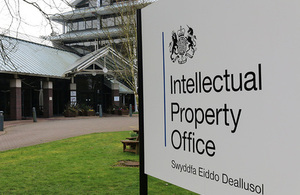Thank you Mr President,
Let me begin, Mr President, by reiterating the United Kingdom’s long standing commitment to a two-state solution. We envision an Israeli and a Palestinian state living peacefully and in security and prosperity side by side, within secure and recognised borders and with Jerusalem as a shared capital. We call on the parties to take urgent steps to reverse the current negative trends on the ground, to refrain from unilateral actions, and to start renewed and meaningful peace negotiations. We are ready to contribute to all credible efforts to restart the peace process.
Inflammatory rhetoric threatens the mutual trust that is required to break the current deadlock. Statements that demonise or denigrate the Jewish people are wholly unacceptable. There is no place for denying either the Jewish or Palestinian connection to the land. It is important the Palestinian leadership continue efforts to implement fully the recommendations of the Quartet Report regarding incitement.
Both parties must remain committed to previous diplomatic agreements, which should form the basis of renewed peace negotiations. We recognise that the Palestinian Central Council recommendation to de-recognise Israel was non-binding, but it is nevertheless wholly unconstructive, and we call on the Palestinian leadership not to implement it. Rather, we welcome the Palestinian Authority’s continued recognition of the State of Israel and its support for a two-state solution. As always, we urge all parties to promote non-violence, and to engage constructively towards a two-state solution as the only basis for a sustainable settlement to the conflict.
To that end, we believe that continued settlement activity and demolitions further undermine the prospects for peace and need to be halted, including in East Jerusalem. The pace of settlement construction has regrettably accelerated, notably with the advancement of plans for over 10,000 settlement units, including the approval of the first new housing units in Hebron for 15 years. And the signs from early 2018 are not encouraging. Only two weeks ago, Israel announced the advancement of a further 1,122 housing units across the West Bank.
We call on Israel to reverse immediately its policy of settlement expansion in the Occupied Palestinian Territories; it undermines both the physical viability of the two-state solution and Israel’s commitment to it.
Mr President,
We must also continue to support humanitarian efforts to meet the basic needs of the Palestinian people, especially in Gaza. This includes support for the full return of the Palestinian Authority to Gaza, and we encourage further progress on reconciliation, including regarding security arrangements and civil service integration, in line with the Quartet Principles. We welcome the recent increase in electricity supplies to Gaza as the first of many positive steps required to improve the dire situation.
The United Kingdom remains a firmly committed supporter of UNRWA and we recognise its unique and important mandate from the UN General Assembly, providing vital services to the Palestinian refugee population, both in the occupied territories and in Jordan, Syria, and Lebanon. Although we do agree that there is an urgent need for UNRWA to become more efficient and cost effective by stepping up the pace of reform, UNRWA must continue to be able to carry out its important functions. Any unexpected reductions or delays in predicted donor disbursements can have damaging impacts and undermine stability in the region.
And finally, Mr President, terrorism and incitement pose grave threats to the prospect of a two-state solution, and must cease. To have the best chances of success, the peace process must be conducted in an atmosphere free from violence and we note with regret the deaths on both sides in recent days. We were appalled by the terrorist murder of Rabbi Raziel Shevach in the West Bank on 9 January and utterly condemn this shameful act. Our thoughts are with his family.
Mr President, every Israeli and Palestinian has the right to live in peace and security. We share the United States’ desire and the desire of others in this Council to end this conflict and we continue to support US Administration efforts to bring forward detailed proposals for an Israel-Palestinian settlement.
The UK stands ready to help implement a viable deal, including by supporting its security provisions, contributing to refugee compensation, and enabling flows of trade and investment between the UK, Israel, a sovereign Palestinian state, and its Arab neighbours, which could help transform the region.
To realise this vision it is time for urgency from all of us. All parties and the international community must work together in the spirit of compromise and understanding, to make a lasting peace a reality. As the late, Israeli President Shimon Peres has said, “He who has despaired from peace is the one dreaming. Whoever gives in and stops seeking peace — he is naïve.”
Thank you.
